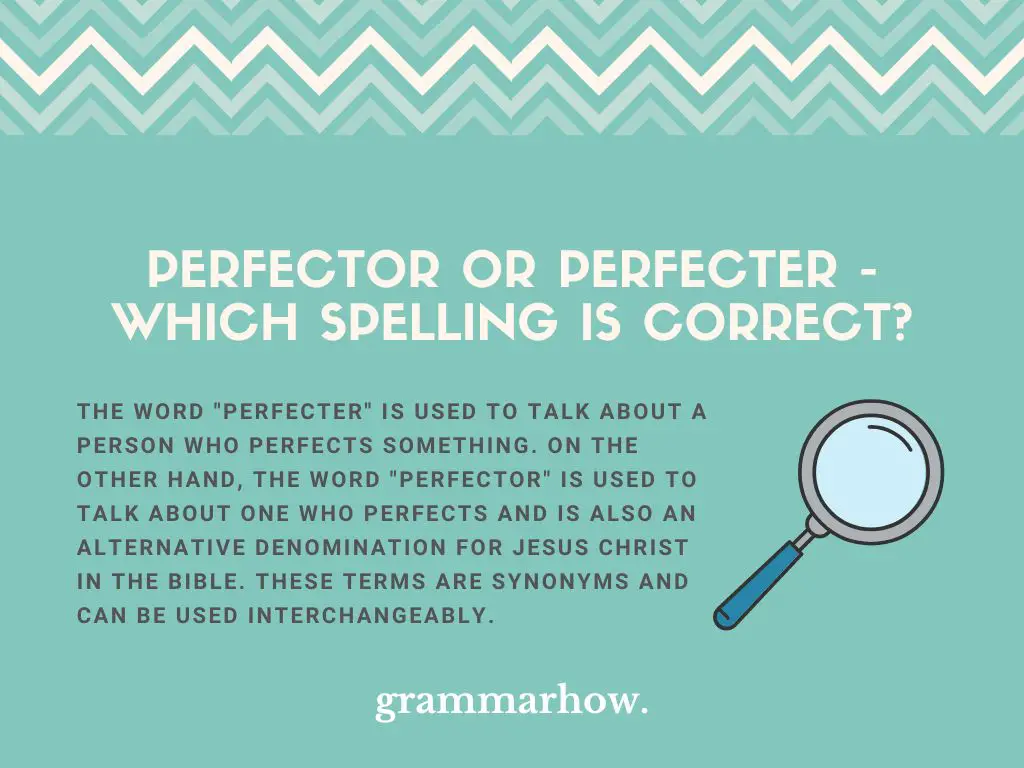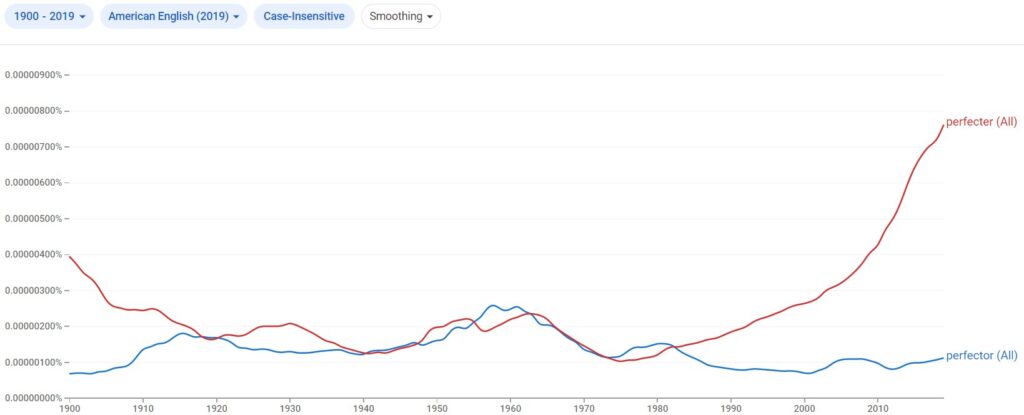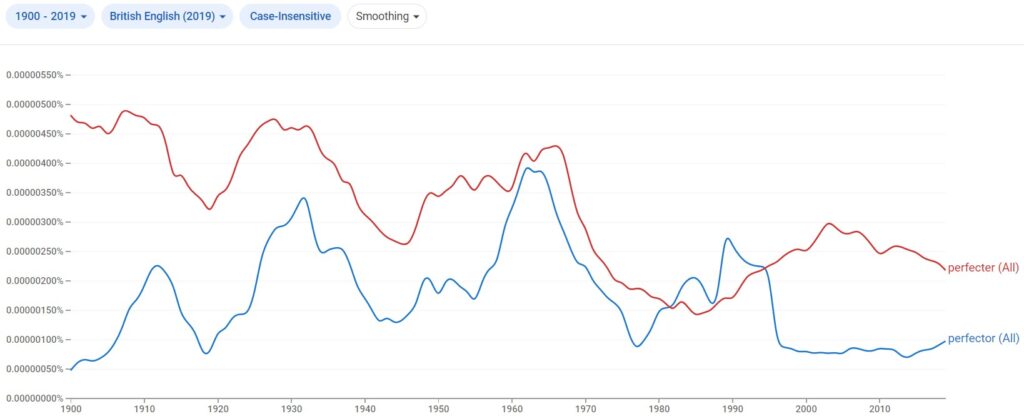There are words called homophones that sound the same and are spelled differently. Other words, like “perfector” and “perfecter” differ for just one letter. In both cases, they are a source of confusion for most English speakers. Thus, in this article, we’ll clear out all doubts regarding “perfector” and “perfecter”.
Perfector or Perfecter – Which Spelling Is Correct?
The word “perfecter” is used to talk about a person who perfects something. On the other hand, the word “perfector” is used to talk about one who perfects and is also an alternative denomination for Jesus Christ in the Bible. These terms are synonyms and can be used interchangeably.

When talking about a skilled craftsman or woman who is working on making something perfect, you can use the word “perfecter” and the word “perfector” alike. On the contrary, when using it as an alternative denomination for Jesus Christ, “perfector” is the only term applicable.
Perfector
The word “perfector” is used to talk about one who perfects and is also an alternative name with which Catholics refer to Jesus Christ in the Bible. “Perfector” is a word usually applied to those who perfect the word done by others rather than creators themselves.
When searching for an extended definition in the Cambridge Dictionary, we found that the prestigious organism shows no tracks of this word. On the other hand, it is possible to find it in the Merriam-Webster Dictionary with the same definitions as cited above.
Let’s take a look at how to use this word in a sentence:
- You know how this works, the perfector is very rarely the creator.
- He was the perfector of much of my creations; we could say he elevated my work.
- As the perfector in this institution, I demand to have more time to give the final touch to every piece.
- He was consulted as a perfector by many local artists trying to take their work to the next level.
- Is a book editor some kind of a perfector or would you say it’s closer to an art critic?
- She was obviously wearing a skin perfector to glow all night long.
Perfecter
“Perfecter” is a word utilized to name a person who perfects something or a very skilled worker or artisan who perfects other people’s work. Since “perfect” is one of the adjectives considered absolute, “perfecter”, “more perfect, or “most perfect” can’t be used in a comparative sentence.
The word “perfecter” is a correct use of the English Language and can be found in spoken and written English to talk about someone who makes something perfect. For example, we can be speaking about a worker or artisan.
When checking the Cambridge Dictionary to enhance the definition of this word, we find that this organization doesn’t have it in its vast database. When checking the Merriam-Webster Dictionary, on the other hand, we find that it is a word with the same definition cited above.
Let’s see how to use “perfecter” in a sentence:
- In sports, arts, and literature, the creator of a technique is very rarely its perfecter.
- It might seem odd to say it but Martin’s sculpture had room for the perfecter to work on it.
- The perfecter of this sport has a first and last name: Lionel Messi.
- There have been many perfecters in this institution, but nobody worked with Shaun’s level of expertise and detail.
- To be the perfecter of other artisans is not something achieved overnight; you have to be very good at your craft.
- Boy, he is the perfecter of great masters, finding someone as talented as him, is very difficult.
Perfector or Perfecter In the US?
According to Google Ngram Viewer, US English speakers prefer to use “perfecter” instead of “perfector”. Moreover, they use the first term 700% more than the second.

Perfector or Perfecter In the UK?
According to Google Ngram Viewer, the people in the UK prefer the use of “perfecter” over “perfector” by a very small margin.

Final Thoughts
The word “perfecter” is a term used to talk about a person who perfects something, commonly, other people’s work. On the other hand, “perfector” is used to designate one that perfects and is also an alternative name for Jesus Christ in the Bible.

Martin holds a Master’s degree in Finance and International Business. He has six years of experience in professional communication with clients, executives, and colleagues. Furthermore, he has teaching experience from Aarhus University. Martin has been featured as an expert in communication and teaching on Forbes and Shopify. Read more about Martin here.

